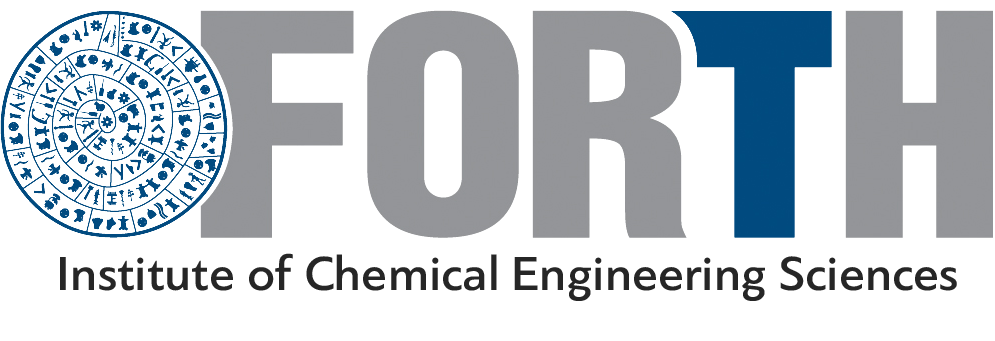Partners
For the implementation of PNP-EOR project, the team of FORTH/ICE-HT will collaborate with research staff from Institut Francais du Petrole energies nouvelles (IFPEN), and Department of Chemical Engineering of University of Waterloo. The Main Research Team (MRT) of FORTH/ICE-HT (Dr. Tsakiroglou, Dr. Theodoropoulou, Dr. Aggelopoulos) has developed significant expertise and know-how on the multi-scale characterization of heterogeneous porous media with application to soils and reservoir rocks, experimental/ numerical study of multiphase transport and reactive processes in porous media, and development / utilization of nanofluids with application to polluted soil and groundwater remediation.
The pre-existing know-how and infrastructure will be exploited to study multiphase flow and transport processes in glass micromodels, soils, and core plugs. Dr. Zacharoula Iatridi who has experience in the area of synthesis of water-soluble and “smart” copolymers, association phenomena of polymers in solution, interaction of polymers with metals or surfactants, stabilization of polymer-inorganic nanoparticles (e.g. manetic and silica NPs) nanohybrids in water, will join the MRT of FORTH/ICE-HT. The MRT will be supplemented with 3 Graduate students, and 2 Ph.D. candidates


Geosciences Division of IFPEN
In order to increase production from each reservoir, particularly mature reservoirs, Geosciences Division of IFPEN (http://www.ifpenergiesnouvelles.com/) is developing Enhanced Oil Recovery (EOR) solutions adapted to each specific reservoir condition and for any type of EOR process. These solutions provide complete coverage of the chain, from formulation development to field application and monitoring. In order to test the formulations developed for a given field in real conditions, IFPEN operates one of the world’s most cutting-edge laboratories with 18 core flood test systems used to study fluid flows in porous media. IFPEN will play an active, collaborating role in: (a) Work Package 2, “WP2 EOR experiments in model porous media” with EOR experiments on the stability and transport mechanisms and properties of PNP charged solutions in etched glass micromodel; (b) Work Package 3 “WP3 Numerical modeling of nanofluid transport in porous media” with the supply of CT-scan images of rocks to reconstruct digital pore networks; (c) Work Package 4 “WP4 EOR studies in core plugs” with the supply of cores for studies, and conduction of certain EOR tests and CT-scan images of multiphase fluid distribution. In addition, if necessary, some special core analysis tests will be performed on core plugs to estimate multiphase flow properties, in the well-equipped Labs of IFPEN, under service contract. Three (3) experienced researchers of IFPEN will participate in the project: Dr. Olga Vizika (Director, Geosciences, IFPEN) has more than 30 year experience on experimental study and numerical modeling of multiphase flow in porous media with applications to oil and natural gas recovery from reservoir rocks. Dr. Jalila Boujlel (Petrophysicist/EOR Engineer) has 10 year experience on the flow of complex fluids, experimental study of chemical EOR processes (polymers, foams), micromodel/microfluidic studies for EOR processes, and nanoparticle EOR applications. Dr. Lahcen Nabzar (EOR/Foam Project Leader) has more than 40 year experience on the flow of particles suspensions through porous media, oil field water management, formation damage and IOR by chemical floods, CO2 and foams.

Dpt Chemical Engineering, University of Waterloo
In Dpt Chemical Engineering, University of Waterloo (https://uwaterloo.ca/chemical-engineering/), there is knowhow and expertise on a diverse range of the project research topics. U. Waterloo will play an active, collaborating role in: (a) Work Package 1, “WP1 Synthesis and stabilization of PNP-based agents” with dynamic characterization of surface/interfacial and foaming/emulsification properties of different PNPs-based nanofluids, and tests of in-situ emulsification / foaming; (b) Work Package 3 “WP3 Numerical modeling of nanofluid transport in porous media” with the numerical simulation of nanofluid multiphase flow and transport in 3D reconstructed pore networks. The dynamic surface/interfacial tension measurements (WP1), and network model calibration against petrophysical (e.g. porosity, permeability, surface area) and image (2D section & 3D micro-CT) data (WP3) will be provided under service contract. Two (2) experienced researchers will participate in PNP-EOR. Prof. Marios Ioannidis has experience on nanoparticles at soft interfaces (adsorption dynamics, stability of foams and emulsions), pore-scale and continuum modeling of coupled transport processes (multiphysics) in porous media (e.g. two- and three-phase flow with solute/nanoparticle transport, reaction and phase change), enhanced oil recovery, soil remediation, and fuel cells. Prof. Jeff Gostick has experience on Multiphase Mass Transfer and Capillary Properties of Gas Diffusion Layers for Polymer Electrolyte Membrane Fuel Cells and he is the creator and commander-in-chief of OpenPNM (http://openpnm.org/) for multiphase modeling in 3D reconstructed pore networks.
